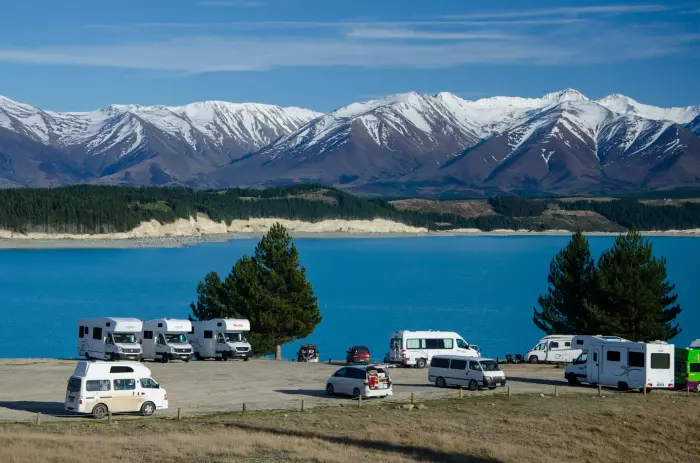People travelling the country in self-styled freedom camping vans, motorhomes, and towed caravans will need certified self-contained toilets to stay on conservation and some council land.
Tourism minister Stuart Nash today announced changes to freedom camping legislation to tighten up requirements on the bete noir of councils up and down the country, although the new law will be phased in over two years.
The new legislation – which will be introduced next year – will mean non-certified vehicles will be banned from staying on Department of Conservation and council-owned land, unless a local body has specifically designated they can stay. The rules can also be extended to cover Waka Kotahi-NZ Transport Agency and Toitū Te Whenua-Land Information NZ land.
A new regulatory system will be introduced, with stiffer fines for non-compliance of up to $1,000 compared to the existing $200 penalty. Self-contained toilets will need to be signed off by registered agents.
“There are hundreds of campgrounds and campsites managed by DoC and commercial operators, many charging very low nightly rates for the use of facilities,” Nash said in a statement. “They will gladly welcome all travellers, no matter what type of vehicle they have.”
Nash flagged the likely changes when opening a consultation on the proposals in April, saying at the time he wanted stiffer rules in place for when international travellers start returning.
Today, he said feedback was clear that some freedom campers remain a problem, with uncertified vehicles, parking outside designated areas, littering, and disposal of human waste.
“When international borders reopen tourism will not match pre-covid levels but we can expect greater pressure,” he said.
“Abuse of freedom camping by domestic and international travellers not only damages our 100% Pure brand, it erodes public support for tourism and undermines its social licence to operate.”





